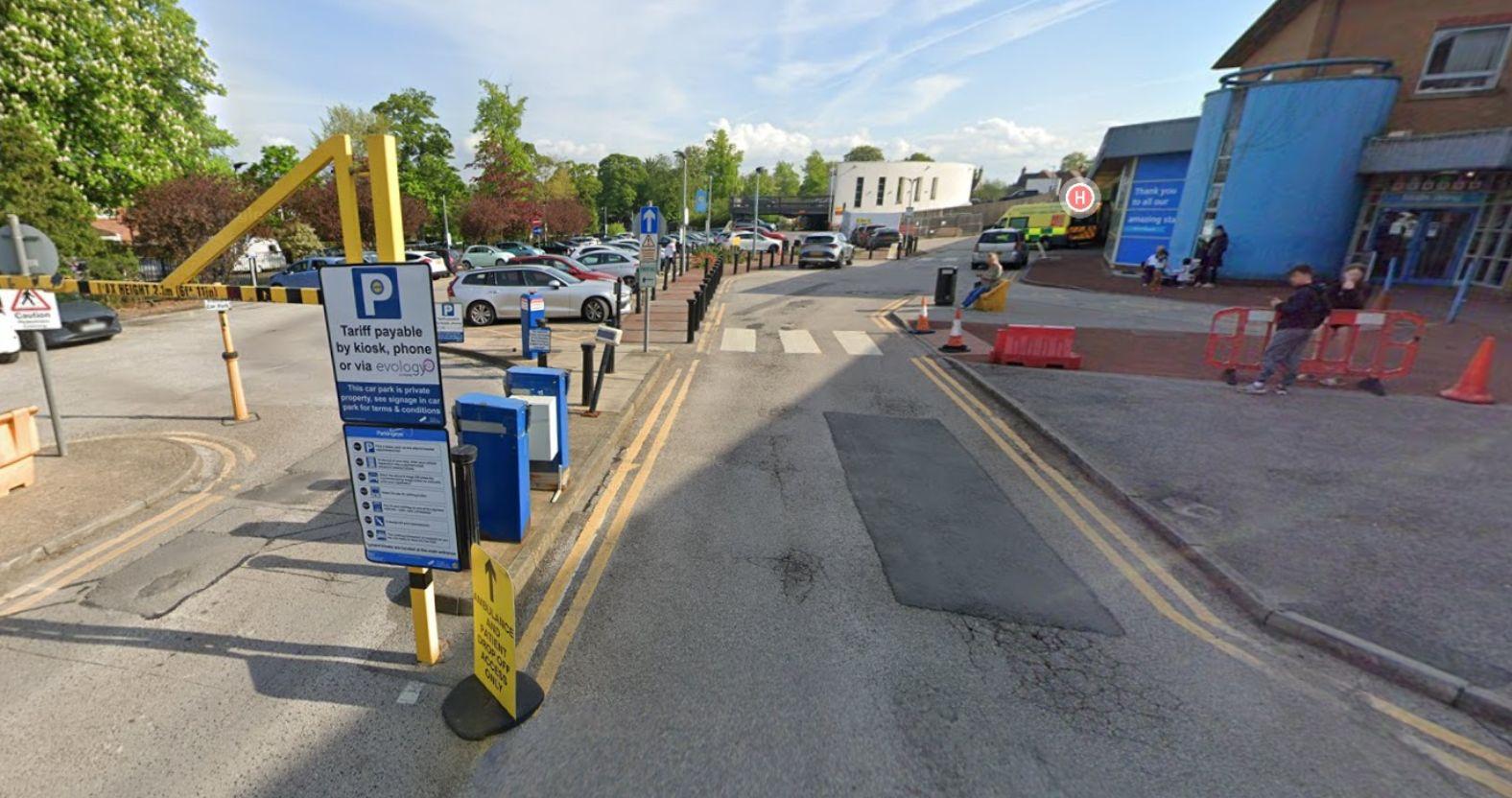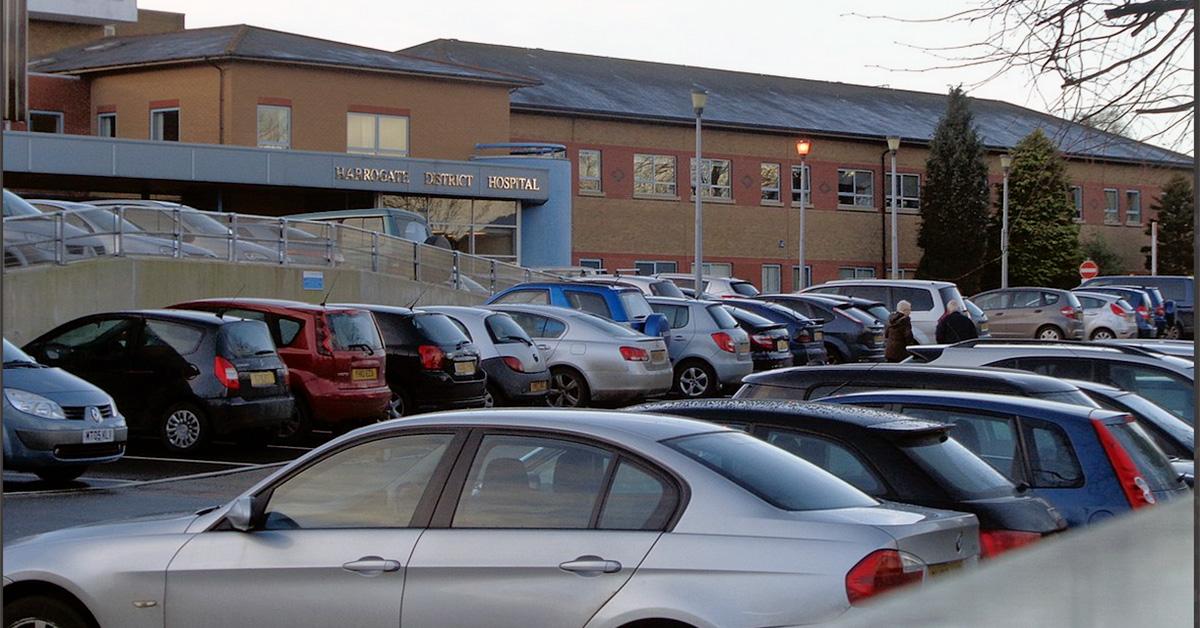Subscribe to trusted local news
If you are accessing this story via Facebook but you are a subscriber then you will be unable to access the story. Facebook wants you to stay and read in the app and your login details are not shared with Facebook. If you experience problems with accessing the news but have subscribed, please contact subscriptions@thestrayferret.co.uk. In a time of both misinformation and too much information, quality journalism is more crucial than ever. By subscribing, you can help us get the story right.
- Subscription costs less than £1 a week with an annual plan.
Already a subscriber? Log in here.
10
Aug 2024
Stray Ferret calls on government to clamp down on unfair hospital parking charges

The Stray Ferret is calling today on the new government to introduce legislation to properly regulate the private parking industry, so that drivers are not hit with unfair parking charges.
We have been contacted by numerous readers who say they have been forced to pay unfair charges by Parkingeye, the national company that runs the car park at Harrogate District Hospital.
The company, which started operating the hospital car park in September 2023, does not receive any money from normal parking fees – its income from the site is derived purely from penalty charge notices, or ‘fines’.
Yet the Lancashire-based firm, which has just two directors but manages hundreds of healthcare sites for more than 30 NHS trusts, saw revenue shoot up by more than 25% between 2021 and 2022, from £39.4 million to £49.2 million, according to its latest accounts filed with Companies House.
Its website says it has “a strong focus on providing ethical parking”, and adds:
... because fairness and accuracy are important to us, we have processes in place to ensure that every parking charge that is issued should be.
'Bullying'
But Parkingeye’s page on consumer rating website Trustpilot tells a different story. Outraged customers describe the company as “appalling”, “disgusting”, “vile” and “devious” – and those are just from reviews left within the last week.
The oldest bad reviews are from nine years ago, but the most recent was left just this Wednesday, and complains of "bullying of the highest standard".
Of the nearly 3,000 reviews of Parkingeye left on Trustpilot, 98% give the company just one star out of five – the lowest rating possible.

Of Parkingeye's 2,929 reviews on Trustpilot, 2,852 give the company the lowest possible rating.
'Profiting from faulty app'
The case of Derek and Zhanna Sendrove from Harrogate is typical. The couple used the hospital car park last October when both were receiving treatment.
They had registered their bank card with the Parkingeye app, which is supposed to make it possible to pay for parking via mobile phone.
But on a visit which lasted 44 minutes and should have cost £4, their card was not recognised, even though it had been accepted every other time they had used the car park.
The couple were handed a £70 penalty charge notice by Parkingeye, which Zhanna unsuccessfully appealed.
Mr Sendrove told the Stray Ferret that Parkingeye seemed to be “profiting from their own faulty app”. He took his case to POPLA (Parking on Private Land Appeals), the independent appeals service, but his appeal was rejected and he ended up having to pay.

Derek Sendrove
Code of practice
In fact, the existence of POPLA as an arbitrator of appeals is in itself contentious. It was introduced by government request in 2012, but was created by the British Parking Association (BPA) – which is itself made up of parking companies including Parkingeye – and is run by a private company.
Although POPLA insists it is independent, the fact that it is paid for by parking companies effectively means the parking industry regulates itself.
This strengthens the case for more effective government regulation.
The Conservative government tried to do this in 2022, with a proposed code of practice, but withdrew it just four months later after private parking companies issued legal proceedings.
Taking back the initiative, this June the industry’s two accredited trade associations, the BPA and the International Parking Community (IPC) published their own single code of practice, to be implemented by October 1.
A spokesperson for Parkingeye said:
As the UK’s leading carpark management services provider, Parkingeye operates responsibly and fairly whilst pioneering best practice throughout the sector.
As a member of the British Parking Association we have welcomed and supported the development of a new single code of practice.
The new code aims to raise standards across the industry and bring more consistent parking standards for motorists throughout the country.
But their proposals are watered down, and effectively mean the sector would continue to regulate itself.
'Predatory'
Tom Gordon, the Liberal Democrat MP for Harrogate and Knaresborough, said that issues with hospital parking had been raised with him and councillors over the last year. He said:
Changes to the parking enforcement and payment systems have caused a great deal of confusion.
Parkingeye should take a pragmatic approach to the situation and make their system easier to understand and apologise where they get it wrong.
When I last met with the chief executive I raised issues pertaining to parking, and when we next meet I shall raise them again.
Private parking companies often act in a predatory manner when pursuing fines, which can add to the stress and anxiety when undergoing hospital visits for treatment or to see family and friends.

Tom Gordon MP
Types of complaint
Complaints against Parkingeye appear to fall into two main categories, and in both cases, customers blame the company for not handling their case well or unfairly rejecting their appeal.
The first concerns people who admit they broke the parking rules, but say they had good reason (such as illness or an emergency).
The second involves people who – like the Sendroves – insist that they broke no rules and blame Parkingeye’s technology for getting it wrong and issuing a charge they did not deserve. Typically, a sum of £100 is demanded, with a reduction to £60 if paid within 14 days. At Harrogate District Hospital, the figures are £70 and £40 respectively.
But what’s going wrong? Well, like many car park operators, Parkingeye operates a system based on automatic numberplate recognition (ANPR). A camera records the registration number of each vehicle as it enters the carpark, and the driver can pay in one of two ways: at a machine in the hospital entrance upon leaving the building or via Parkingeye’s Evology mobile phone app.
Many of the complaints relate to failures in the technology – either the on-site machines not working or the app not registering payment.
But while glitches can occur wherever technology is involved, many customers are incensed by Parkingeye’s apparent refusal to accept the fallibility of its devices or to take mitigating factors into account – despite what it says on its website.
One man was charged £100 even though he was parked with permission while attending a police station, having been knocked off his bike by a car. Another was fined £100 for parking in a Parkingeye car park just three minutes before it officially opened.

Overstaying at the hospital carpark lands visitors with an automatic £70 charge.
Petitions
Such is the strength of feeling about Parkingeye, that there have been several petitions launched online about it. One, started in January 2019, complains to United Lincolnshire Hospitals NHS Trust that the company’s “payment machines don’t work consistently” and “PCNs [penalty charge notices] are issued in error”.
Another, launched just a few months later, calls on the same trust to “stop the driver abuse by Parkingeye”.
A third in the same year urged hospitals not to employ Parkingeye due to its “extremely unfair system for penalising unwell, injured or elderly people visiting hospitals for appointments”.
Yet another petition, launched this January, demands that the company review its penalty imposition and appeals processes.
Perhaps unsurprisingly given the footfall involved, car parking at hospitals is big business. In 2022-23 – the latest figures available – patients and visitors in England alone shelled out nearly £146 million on parking, and £486,000 of that was paid to Harrogate and District NHS Foundation Trust.
According to the BPA, 99.7% of parking stays at its members’ carparks do not result in a penalty charge notice, yet members still issued well over nine million charges via ANPR.
Tomorrow, we’ll hear from some of the people who have parked at Harrogate District Hospital and been hit with unfair parking charges.
3